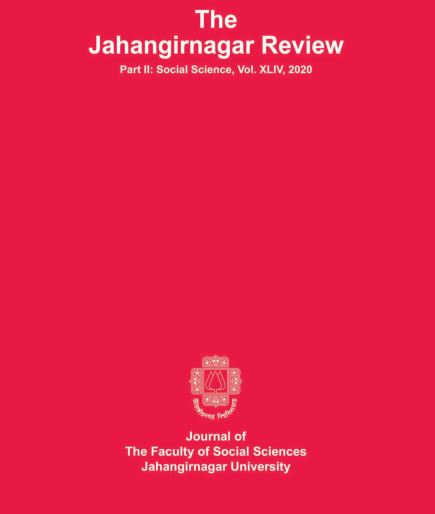Shifting Masculinities: Everyday Gender Practices among Informal Sector Workers in Urban Dhaka
Main Article Content
Abstract
Men in Bangladesh society, in general, have for long been habituated to consider women as dependent to them. One of the central pretexts that provide validation to such asymmetrical positioning is the ideology that men are the ‘main bread-earners’ and ‘providers’ of a family, and women’s role is of submissive ‘home maker’. It is important to enquire if this ideological tenet still holds its grip or has been dislocated. Similarly, important is to investigate the ways in which men and women connect or react to the changes in their roles and statuses. To unravel the transformation in gender ideologies and practices in contemporary Bangladesh, we assume that special attention needs to be given as to how the discourses of male dominance are shaped, contested, and reinforced in diverse contexts within Bangladesh society. Is it so that the ‘provider’ men find themselves at an unease to accept the transformation that unfolds as women gradually take up income earning activities in both formal and informal economic settings? How do men react to the ‘crises’ and ‘tensions’ that emanate from their role change? Is it adequate to view the attitude and action only in terms of reproduction and reinforcement of dominant patriarchal norms and values? How to account for the multiplicities of men’s reactions? On the other hand, as the ‘constructionist perspective’ stresses that masculinity is not only a physiological state but a ‘social construction’ within a particular culture (Fuller 1996), attention is generally given to the ways in which the (re)making of masculinity is connected to the workings of major social institutions such as marriage, family or household.
However, as we argue here, exploration of social construction per se is not adequate to explain the fluidity of the ways in which affect, emotion, feeling, aspiration, prestige, dignity etc. come strongly into play in everyday life, and disrupt the simplistic and linear narratives as regards hegemonic power of institutions and ideologies. Also, the challenges and resistances that are posed to the dominant masculinities are not similar or uniform across classes, social contexts, and locations; even within same context, it is likely that emotions, affects and feelings would be formed, manifested, and practiced in diverse ways. This write-up aims to go beyond the dominant narratives that focus mostly on structures and patterns of ‘classical patriarchy’ and shed light on the ‘legitimizing’ and ‘validating’ discourses of gender inequality. Not undermining the importance of discourses and patterns, what we try here is to illustrate the quotidian ways in which dominant ideologies, norms, feelings, and emotions relating to femininity and masculinity come to be contested, negotiated, reinforced, and subverted in the context of extensive dispossession, uncertainty and precarity. By putting more emphasis on bodily experience, affect and negotiation of power, we account for the fluidity and plurality that unfolds in the everyday life world. There are heterogenous ways in which diverse forms masculinities are experienced, subverted or reproduced by both men and women of impoverished households located in the margins of in urban and peri-urban Dhaka.
As we highlight the everyday forms of the gender understandings and feelings, we bring forward narratives as regards the deeper senses of insecurities that come to the fore in the context of precarity emanating from exclusionary social setting, unfavorable state policy and ‘adverse inclusion’ by the market forces. We highlight that the ways in which gendered practices come into play have strong connection to the diverse ways in which exclusion, exploitation and inequality work in a particular context. Our emphasis on plural, fragmented, and contested ways in which masculinity is molded and remolded in the lived realities is an attempt to make ways for questioning monolithic narratives that are dominant in terms of understanding gender norms, ideologies and practices.

